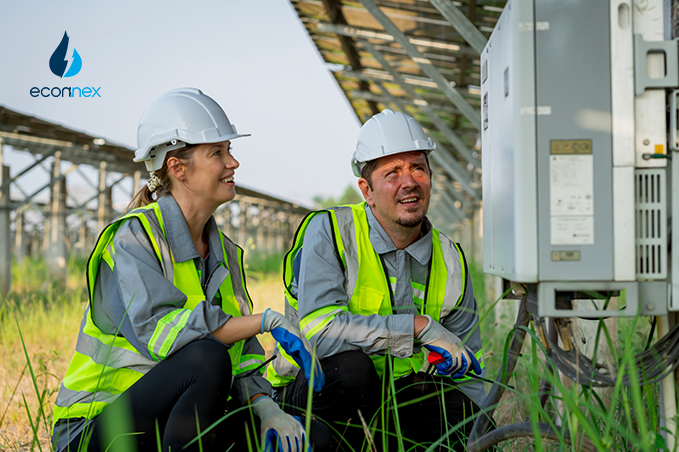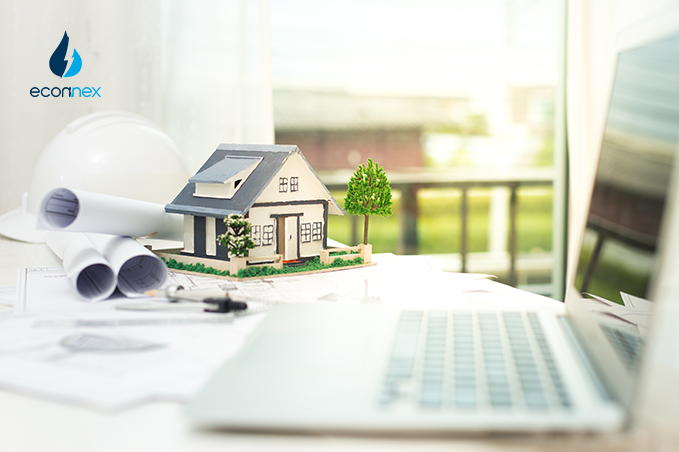Solar energy has emerged as a prominent renewable energy source, offering numerous environmental and economic benefits for Australian consumers and businesses alike. As the demand for solar power increases, so does the focus on solar panel efficiency. Solar panel efficiency refers to the ability of solar panels to convert sunlight into usable electricity.
In this blog, we will delve into the concept of solar panel efficiency, its significance, factors affecting efficiency, and the latest advancements in solar technology. Let's explore how maximising solar panel efficiency can contribute to a more sustainable future.
Understanding Solar Panel Efficiency
Solar panel efficiency measures how effectively solar panels convert sunlight into usable electricity. It is typically expressed as a percentage, representing the ratio of electricity produced to the amount of sunlight received. Higher efficiency means more electricity generation per unit of sunlight exposure (not heat), resulting in greater energy output and improved system performance.
Why is Solar Panel Efficiency Important?
- Enhanced energy production - Higher-efficiency solar panels generate more electricity from the same amount of sunlight, maximising energy production and reducing dependence on other energy sources.
- Space optimisation - Efficient solar panels require less installation space to generate the desired amount of electricity, making them suitable for rooftops and areas with limited space.
- Cost savings - Improved efficiency leads to higher energy yield, allowing homeowners and businesses to save on electricity bills and potentially earn income through excess power generation.
- Environmental impact - Solar energy is a clean and renewable energy source. By maximising the efficiency of solar panels, we can reduce reliance on fossil fuels and minimise carbon emissions, combating climate change and preserving the environment.
- Technological advancements - Advances in solar panel efficiency drive innovation and contribute to developing more efficient and affordable solar technologies.
Check - Solar Panel Installation Cost Breakdown
Factors Affecting Solar Panel Efficiency
- Cell technology - Different solar cell technologies exhibit varying efficiencies. Monocrystalline silicon cells typically have higher efficiency compared to polycrystalline or thin-film cells.
- Temperature - Solar panels operate less efficiently at higher temperatures. Excessive heat can decrease efficiency, highlighting the importance of proper ventilation and cooling mechanisms.
- Shading - Partial shading on solar panels can significantly reduce their efficiency. It is crucial to design solar systems that minimize shading and ensure maximum exposure to sunlight.
- Angle and orientation - The angle and orientation of solar panels impact their efficiency. Proper installation and alignment maximize the capture of sunlight throughout the day and across seasons.
- Aging and degradation - Solar panels may experience slight degradation over time, resulting in a decrease in efficiency. However, modern panels often come with warranties that guarantee performance over a certain period.
Explore Solar Battery Storage Systems
Advancements in Solar Panel Efficiency
- PERC technology - Passivated Emitter Rear Contact (PERC) technology enhances the efficiency of solar cells by minimizing electron recombination, resulting in higher energy conversion rates.
- Bifacial panels - Bifacial solar panels can capture sunlight from both sides, increasing their energy yield. They are designed to absorb reflected sunlight from surrounding surfaces, making them more efficient in certain environments.
- Tandem solar cells - Tandem solar cells combine different materials with varying absorption spectra to maximize energy conversion. They can achieve higher efficiencies by utilizing a broader range of the solar spectrum.
- Thin-film technologies - Thin-film solar panels, such as CIGS (copper indium gallium selenide) and CdTe (cadmium telluride), offer unique advantages, including flexibility, lightweight construction, and the ability to perform well under low-light conditions.
- Emerging technologies - Researchers are continuously exploring new materials and technologies to further improve solar panel efficiency. These include perovskite solar cells, multi-junction cells, and quantum dot solar cells.
Choosing the Right Solar Panels
When considering solar panel efficiency, it is essential to weigh other factors such as cost, durability, and warranty. High-efficiency panels often come at a higher price point, so it is crucial to assess the long-term benefits and payback period. Additionally, consider factors such as the available space, local climate, and specific energy needs to determine the most suitable solar panels for your installation.
Find Your Solar Solution with Econnex Comparison
Solar panel efficiency plays a crucial role in maximizing the benefits of solar energy. By selecting efficient panels and implementing best practices in installation and maintenance, we can harness the power of the sun more effectively. The continuous advancements in solar technology and the quest for higher efficiencies pave the way for a more sustainable future.
When you’re ready to finally make the leap into solar and realise its advantages (both financially and environmentally), the Econnex Solar Comparison platform is on hand to provide an unbiased, independent and seamless solar purchasing experience. Simply enter your address and begin comparing products available for that property from our extensive panel of retailers.
Embracing solar energy and optimising solar panel efficiency are vital steps towards reducing carbon emissions, mitigating climate change, and achieving a cleaner and greener planet for generations to come. Start your journey today.




